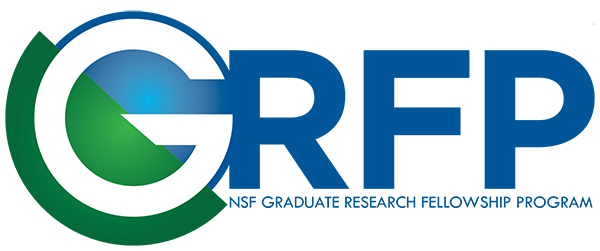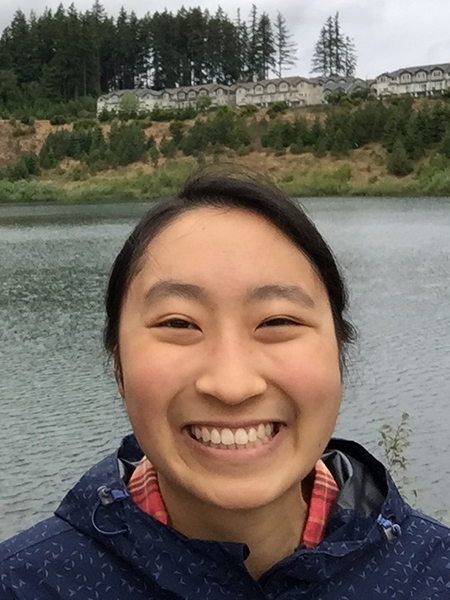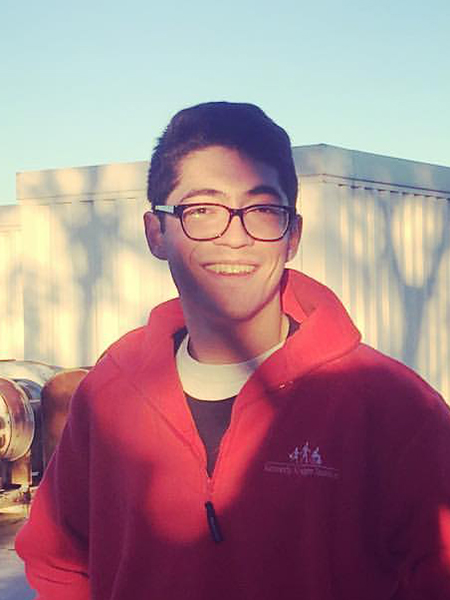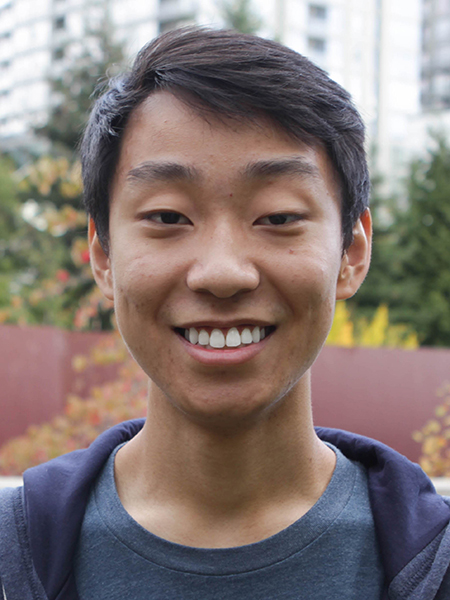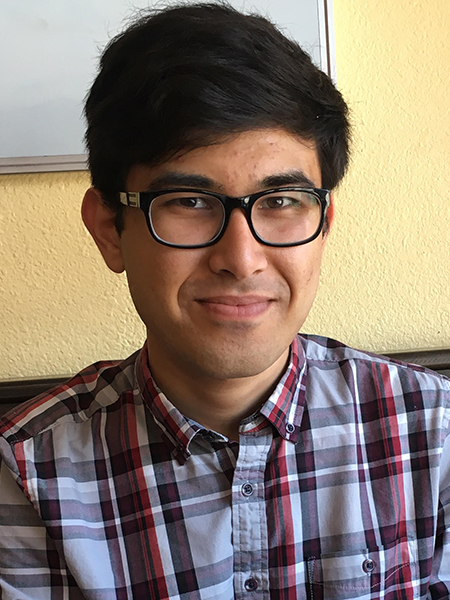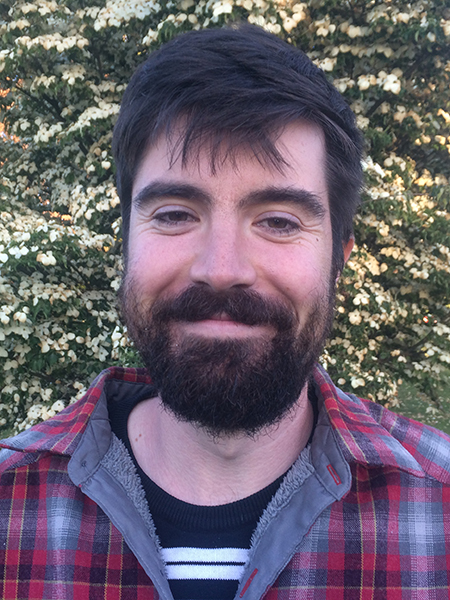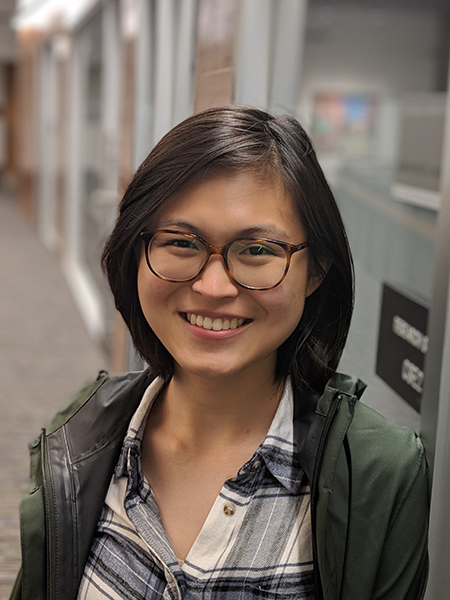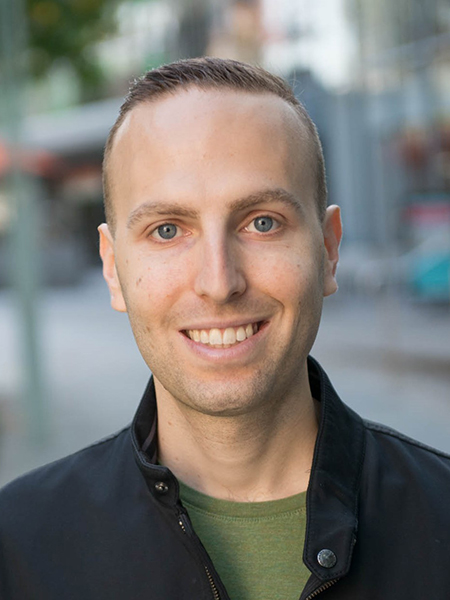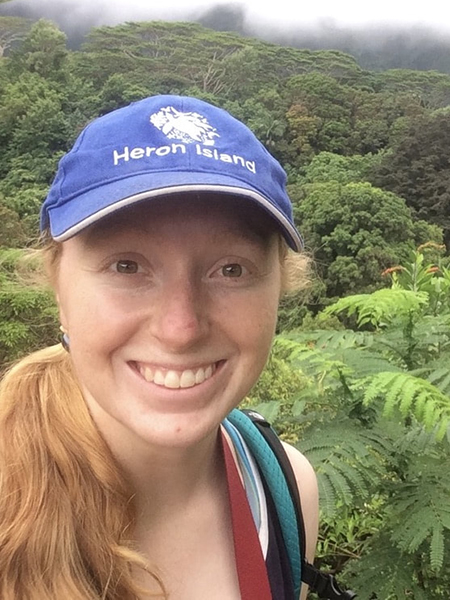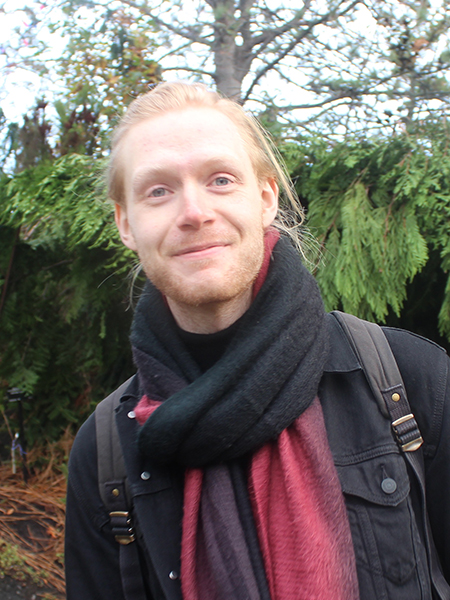Nine Allen School students were recently honored for excellence in computing-related research by the National Science Foundation as part of the agency’s 2019 Graduate Research Fellowship competition. The NSF Graduate Research Fellowship Program — the oldest fellowship program of its kind — recognizes and supports outstanding graduate students pursuing research in designated science, technology, engineering, and mathematics disciplines. The goal of the GRFP is to assist recipients in becoming lifelong leaders who will contribute to science and engineering education and innovation while advancing the nation’s technological infrastructure, security, and societal well-being.
Over the past five years, the NSF has recognized 46 Allen School student researchers for excellence in the “Computer and Information Science and Engineering” category through the GRFP competition. Read on to discover how the 2019 honorees are helping to shape the future of computing through their work in artificial intelligence, machine learning, natural language processing, computational biology, robotics, security and privacy, ubiquitous computing, and theoretical computer science.
Christine Chen, security and privacy
Fellowship winner Christine Chen is a Ph.D. student in her second year at the Allen School working with professor Franziska Roesner in the Security and Privacy Research Laboratory.
Chen’s research interests lie at the intersection of technology and crime, physical safety, and at-risk populations. Her recent work has focused on technology and survivors of human trafficking. Chen just wrapped up a study in which she interviewed victim service providers (VSPs) to expose how technology can be utilized to re-victimize survivors of trafficking and understand how VSPs mitigate these risks as they interact with and support survivors. As a result of this work, Chen and her collaborators propose privacy and security guidelines for technologists who wish to partner with VSPs to support and empower trafficking survivors. The study will be presented at the upcoming USENIX Security Symposium in August.
Benjamin Lee, artificial intelligence
First-year Ph.D. student Benjamin Lee won a fellowship for his work with professor Daniel Weld in the Allen School’s Artificial Intelligence research group.
Lee’s research spans explainable artificial intelligence and human-AI collaboration. He is particularly interested in the development of explainable, interactive recommender systems that will impart greater understanding and control to users, given that current systems tend to be opaque and offer only limited explanation for why they issued a particular result. To that end, Lee and Weld have partnered with the Semantic Scholar team at the Allen Institute for Artificial Intelligence (AI2) to examine explainable AI in the context of research paper recommendations issued by academic search engines. As part of this project, Lee and his collaborators are exploring how enabling users to act on explanations via more granular up-and-down ratings and natural language feedback could improve the relevance and quality of recommendation results.
Nelson Liu, natural language processing
Undergraduate Nelson Liu earned a fellowship for his work to improve the generalizability and robustness of natural language processing systems with professor Noah Smith of the Allen School’s Natural Language Processing group.
In a recent project undertaken with Smith, research scientists Matt Gardner and Matthew E. Peters of AI2, and Harvard SEAS/MIT CSAIL postdoc Yonatan Belinkov, Liu and Smith examined the linguistic knowledge implicitly encoded within contextualized word vectors by assessing their ability to predict a broad range of linguistic features of their input text. In other work with Smith and former Allen School postdoc Roy Schwartz of AI2, Liu proposes a new approach for characterizing the lack of robustness in NLP methods — a first step towards disentangling failures of models from deficiencies within their training datasets. Liu and his collaborators will present papers on both projects at the upcoming conference of the North American chapter of the Association for Computational Linguistics (NAACL 2019). Liu will continue his research as a Ph.D. student at Stanford University this fall.
Sherdil Niyaz, robotics
Sherdil Niyaz, a second-year Ph.D. student in the Personal Robotics Laboratory, received a fellowship to support his work on motion planning with Allen School professor Siddhartha Srinivasa.
Niyaz is interested in designing graph-based motion planning algorithms for robots deployed in highly challenging and constrained environments, particularly in surgical and manufacturing scenarios. His current work focuses on interleaving these algorithms with gradient-free optimizers to improve the setups of difficult motion planning problems. He is also a strong believer in public education and intends to become a teaching professor after completing his degree. Niyaz previously earned an Honorable Mention in the NSF GRFP competition while an undergraduate student at the University of California, Berkeley.
Nicholas Nuechterlein, machine learning
Ph.D. student Nicholas Nuechterlein earned a fellowship for his research at the intersection of machine learning and medicine with Allen School professor Linda Shapiro and professor Tara Madhyastha of the UW Radiology Department.
Nuechterlein develops ML models for analyzing medical resonance imaging (MRI) and genomic data to improve outcomes for patients with glioblastoma multiforme (GBM), an aggressive form of brain cancer. Current ML methods tend to be ineffective when faced with the high-dimensional, heterogeneous, and incomplete data sets typically associated with GBM. Nuechterlein has developed an automatic segmentation algorithm to scale the analysis of GBM patient datasets containing advanced MRI sequences capable of shedding light on the tumor microenvironment. His goal is to develop an interpretable ML classifier able to distinguish between true progression of GBM tumors, which require immediate, aggressive changes in treatment, and pseudoprogression, which indicates the current treatment is effective. The results of this work will prevent patients from undergoing unnecessary surgeries and could be extended across other medical imaging domains to improve the standard of care.
Ewin Tang, theoretical computer science
Fellowship winner Ewin Tang is a first-year Ph.D. student working with professor James Lee in the Allen School’s Theory of Computation group.
Tang explores the capabilities of “quantum-inspired” classical sublinear-time sampling algorithms to understand where quantum machine learning can and cannot revolutionize data analysis and machine learning practice. She was previously recognized among Forbes’ “30 Under 30” in science for developing an algorithm enabling a classical computer to solve the “recommendation problem” in roughly the same time that a quantum computer can, exponentially faster than previous algorithms. Tang is also interested in extension complexity, a line of research in which she and Lee aim to prove that certain problems are hard for the linear systems solvers and SDP solvers frequently used in practice.
Matthew Whitehill, ubiquitous computing
First-year Ph.D. student Matthew Whitehill earned a fellowship for his work with professor Shwetak Patel in the Allen School’s UbiComp Lab.
Whitehill’s research involves the development of novel sensing systems that leverage creative approaches to signal processing and machine learning, with a particular interest in systems having applications in health and wellness. For example, two of Whitehill’s current projects involve using sound as the sensing medium to better track patient’s pulmonary health. One project involves the use of a deep neural network to identify users by their cough, while the other determines a user’s deviation from their baseline lung functionality based on their speech. In the future, Whitehill hopes to apply his expertise to improving disease diagnosis and monitoring in the developing world.
Erin Wilson, computational biology
Fellowship winner Erin Wilson is a second-year Ph.D. student working in Computational and Synthetic Biology with professors Georg Seelig of the Allen School and Department of Electrical & Computer Engineering, Mary Lidstrom of Microbiology and Chemical Engineering, and David Beck of Chemical Engineering and the eScience Institute.
Wilson’s research spans the intersection of genetics, data science, and sustainability. Her work is largely inspired by her previous experience at biotech companies Amyris and Zymergen, who engineer microorganisms such as yeast and bacteria into tiny, biological factories that can sustainably produce everyday molecules. This is accomplished by editing the microorganisms’ genomes to convert renewable feedstocks (sugar) or waste streams (methane) into a new desired target molecule such as medicine, biofuel, or other molecules found in nature. Wilson’s current research focuses on applying computational methods to better understand the “genetic grammar” underlying how these microorganisms control gene expression and use these insights to more efficiently engineer them for sustainable molecule production.
Peter West, natural language processing
Second-year Ph.D. student Peter West received an honorable mention from NSF in recognition of his research in NLP, particularly where it intersects with questions of cognition, information theory, and machine learning.
West works with Allen School professor Yejin Choi in the xlab, where he aims to answer fundamental questions about how statistical models relate to language and cognition. For his current project, he applies concepts from information theory to summarize sentences unsupervised, without requiring human-written examples. West, whose work is funded by a postgraduate fellowship from Canada’s Natural Sciences & Engineering Research Council (NSERC), has previously conducted research on microfluidic sensors, computational biology, auction simulation, and synthetic biology — experience which continues to shape his approach to his latest research.
Two recent Allen School bachelor’s alumni — Emily Allaway (B.S., ’18) and Ryan Benmalek (B.S., ’17) — were also recognized as part of this year’s NSF GRFP competition. Allaway, currently a graduate student at Columbia University, earned a fellowship for her research in NLP. As an undergraduate, Allaway worked with professor Yejin Choi and graduate students Hannah Rashkin and Maarten Sap of the Allen School’s NLP research group. Benmalek, a second-year graduate student at Cornell University, received a fellowship for his work encompassing computer vision and NLP. During his time at the University of Washington, Benmalek worked with Choi and Allen School professor Ali Farhadi. In addition to the Allen School recipients, Ph.D. student Jenna Register of the UW’s Information School earned a fellowship for her work in human-computer interaction.
Congratulations to all of this year’s honorees!


